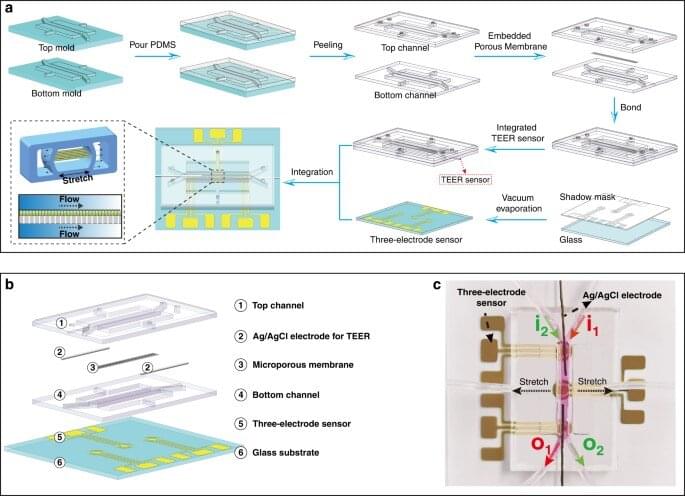The transport of mercury ions across intestinal epithelial cells can be studied for toxicology assessments by using animal models and static cell cultures. However, the concepts do not reliably replicate conditions of the human gut microenvironment to monitor in situ cell physiology. As a result, the mechanism of mercury transport in the human intestine is still unknown.
In a new report now published in Nature Microsystems and Nanoengineering, Li Wang and a research team in mechanical engineering and regenerative medicine in China developed a gut-on-a-chip instrument integrated with transepithelial electrical resistance (TEER) sensors and electrochemical sensors.
They proposed to explore the dynamic concept to simulate the physical intestinal barrier and mirror biological transport and adsorption mechanisms of mercury ions. The scientists recreated the cellular microenvironment by applying fluid shear stress and cyclic mechanical strain.
